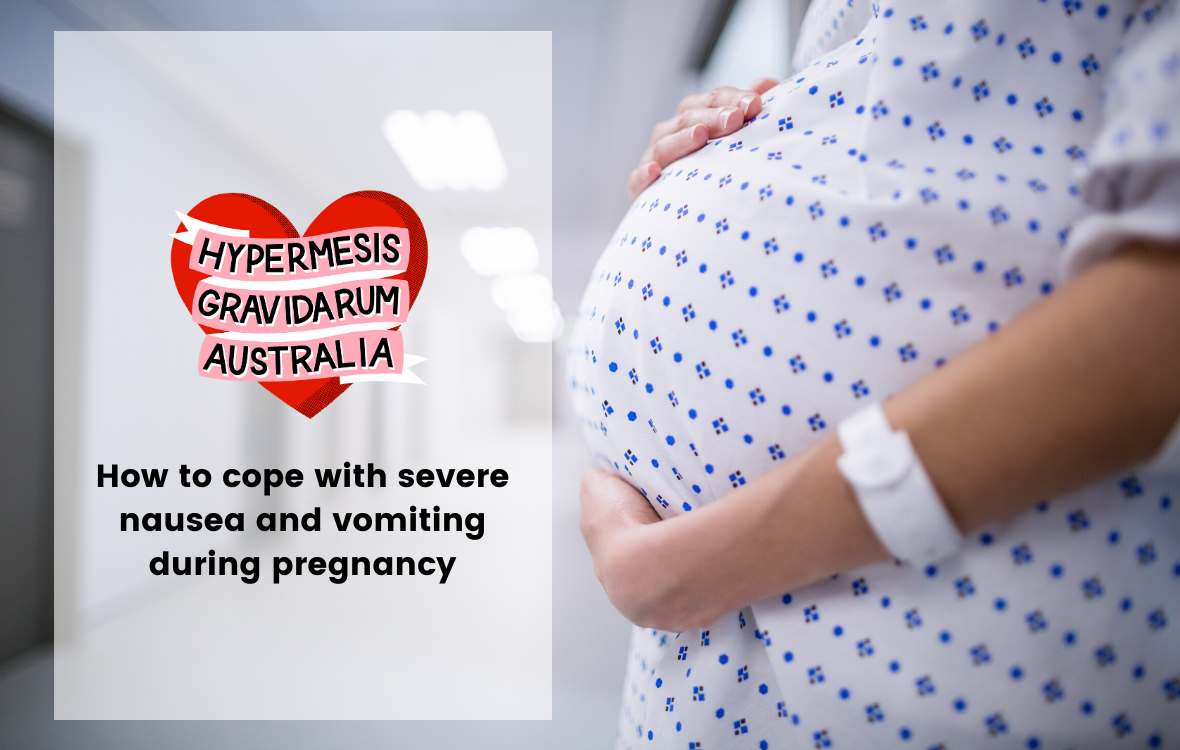One of the dead giveaways when someone is pregnant is that they stop drinking alcohol. However, another is that there is this sudden “look” about them – nauseous, pale and making rapid trips to the toilet. In the absence of alcohol, this can be a sign that nausea and vomiting in pregnancy have kicked in. There are many ‘levels’ to this diagnosis, ranging from just feeling off through to hyperemesis gravidarum but many women find that this troubling issue can really take away from the first trimester of pregnancy, and sometimes even longer. Some tips and tricks may help women to cope through what can be a troubling time.
Nausea and vomiting of pregnancy is the new term for what used to be called “morning sickness”. The change in name not only reflects the diagnosis better in terms of what is happening and why, but it also reflects that in fact the ‘sickness’ may occur in the morning, but it also is a common all-day occurrence and may also occur only in the evening.
Figures suggest that between 50 and 90% of women have some nausea and vomiting in pregnancy. The normal course is that women start to feel nauseous at around 6 weeks of pregnancy, peaking at 9 weeks and usually resolving by 16 weeks. The cause is not definitive but there is a hormonal component in most cases, potentially linked with placental function which is why when the placenta is fully functioning at 16 weeks many women start to improve. There are extremes – 15-20% of women will experience NVP until the third trimester and 5% will experience it until birth. Fortunately, unless the condition is really severe, there is no increased risk to the baby and for women who are of normal BMI, there is limited risk to the mothers.
At the more troubling end of the spectrum though is Hyperemesis Gravidarum (HG). HG has had significant media attention in recent years courtesy of the Princess of Wales (i.e. Princess Kate) who was reported to have experienced HG in all of her three pregnancies. Where NVP is relatively common, a diagnosis of HG is not. Only 0.3 – 3% of pregnant women are thought to have HG which is characterized by intractable vomiting, occurring every day, with weight loss and ketoacidosis being also linked with this disorder. HG is not NVP. HG requires attention from your healthcare provider and support to ensure both mother and baby remain well. The remainder of this article will focus on NVP but also emphasize that if the condition is worsening medical assistance is needed.
NVP may be something that requires a small amount of adjustment in aspects such as diet and fluids, through to something that requires medication and management. It is important to speak to your healthcare provider if you are experiencing vomiting and to be assessed to ensure you are not becoming dehydrated. Common strategies to reduce symptoms include small amounts of carbohydrates (dry crackers, toast, apple) before getting out of bed, avoiding swings in blood sugar by eating tiny but regular meals, focusing on your fluids – sipping a medicine cup full of fluid every 15 minutes rather than large amounts of fluid in one serve and ensuring that you are not consuming a large amount of highly sugary or high-fat foods which can upset the stomach.
For severe cases of morning sickness, IV infusion drips may be recommended by healthcare professionals to restore hydration and provide relief when oral remedies aren’t effective.
Other simple but effective strategies to reduce symptoms include sea sickness bands, acupuncture and ginger as a supplement with medication being the “next steps”. When medication is required this may range from Vitamin B supplements through to a range of anti-nausea medications. It is really important that your health care provider is involved in the decision-making around using medications as a full physical is generally recommended prior to commencement. Sometimes hydration is the key and can turn things around. It is not normal to need to go to the hospital for IV fluids, but occasionally where other factors, such as heat, environmental issues and conditions and an inability to consume fluids regularly – because of workloads, it can be helpful to get back on track by having a short period of IV hydration. Your care provider will be able to advise. If you are unable to pass urine regularly, feel excessive thirst or are experiencing a dry mouth you may be experiencing dehydration. Do not hesitate to seek further advice in these circumstances.
NVP is a difficult issue in early pregnancy for many women. It is important to lighten your activity and to seek assistance if small changes to your diet and hydration are not successful.









